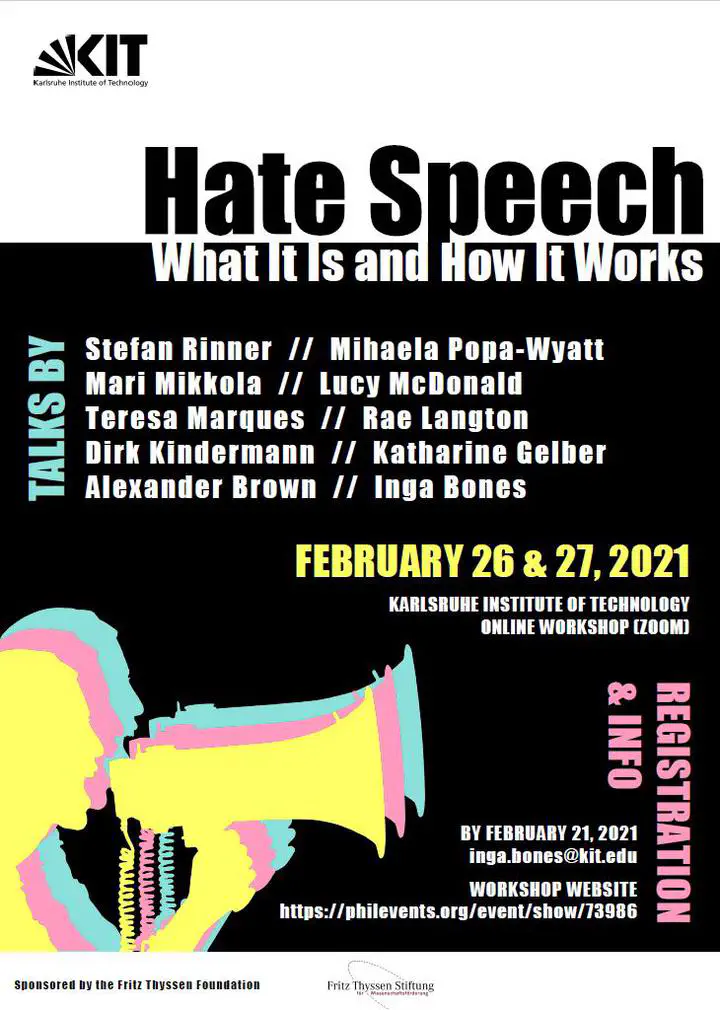Hate Speech: What it is & How it works
A workshop on the concept, semantics and pragmatics of hate speech, funded by the Fritz Thyssen Foundation

Recent surveys suggest that hate speech is on the rise, particularly on the internet and on social media. Hate speech, its potential to harm individuals, and its corrosive effects on democracy and social stability are widely discussed in politics, in the media, and by the broader public.
However, a closer look at public debate reveals that it is far from clear what exactly hate speech is – despite occasional attempts to provide sufficiently precise definitions. Some authors focus exclusively on hostility on the internet, others equate hate speech with the verbal expression of a speaker’s vitriolic emotions, and still others treat ‘hate speech’ as synonymous with legal terms such as ‘incitement of the masses’. The conceptual unclarities of public debate are partly mirrored by scholarly debate, as various efforts to outline a narrow conception of hate speech have not yet led to a broad consensus among scholars.
In addition, there’s a lively scholarly debate about how hate speech and harm are related. Empirical studies suggest that there is a direct or indirect causal link between certain kinds of speech and harm. On the other hand, leading scholars in feminist philosophy of language have long pointed out that, arguably, there is a constitutive relationship between speech and harm as well. According to this constitutive view, certain speech acts in themselves are harmful acts of silencing, subordination, or oppression. Relatedly, since it seems that hate speakers require authority in order for their utterances to ‘succeed’ as oppressive acts, questions concerning authority have come to the fore.
The two-day online workshop aims at advancing our understanding of the nature of hate speech and its mode(s) of operation – what hate speech is and how it works.
Accordingly, possible questions to be addressed are:
- What exactly is hate speech? Is there one (or are there few) core concept(s) expressed by the term ‘hate speech’ as used in public debate, or does ‘hate speech’ function as a mere umbrella term for various kinds of harmful speech?
- Is the term ‘hate speech’ of any use, given that its meaning is far from clear? Should we continue to use it? Should we (try to) ameliorate the respective concept(s)?
- What exactly does it take for hate speech to constitute harm?
- Is (some) hate speech a subset of authoritative speech? If so, how is the relevant authority gained?
- Which linguistic mechanisms does hate speech exploit? What is the role of, e.g., presupposition accommodation or Gricean implicature?
The workshop is funded by the Fritz Thyssen Foundation. A short summary (in German) is available here.